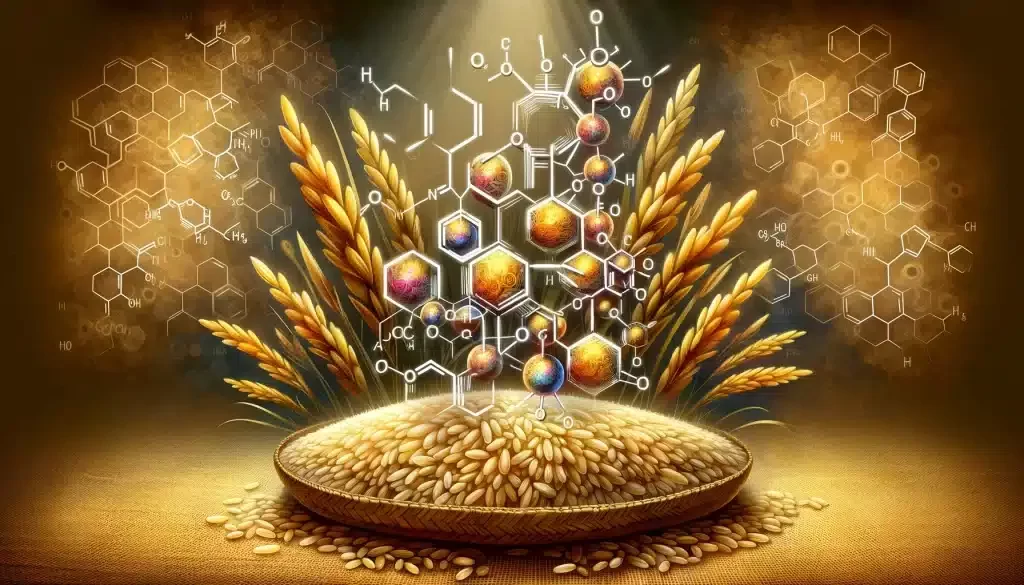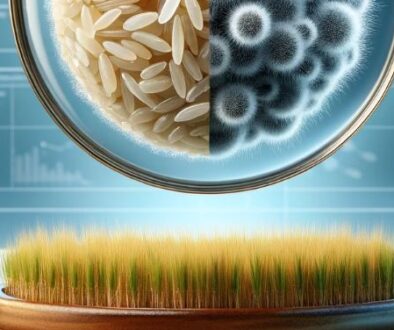Rice Peptide: Molecular Characteristics, In Vitro and In Vivo Antihypertensive Effects
Explore the antihypertensive effects and absorption mechanisms of rice peptides in managing hypertension through innovative in vitro and in vivo studies.
Key words:
rice peptide, ACE inhibitory activity, antihypertensive effect, Caco-2 cell
Abstract
This article focuses on rice peptides, analyzing their absolute molecular weight, amino acid composition, and in vitro activities, as well as their antihypertensive effects both in vitro and in vivo. The study delves into the peptides’ molecular characteristics, their potent antioxidant and ACE-inhibitory actions, and evaluates their blood pressure-lowering capabilities through comprehensive experiments involving both single-dose and long-term administrations in hypertensive rat models. Additionally, the absorption mechanism of synthetic tripeptides in the intestinal epithelial cells is explored through Caco-2 cell models, providing insights into the potential pathways for peptide absorption. This paper highlights the innovative approaches in evaluating the antihypertensive effects of rice peptides and their underlying mechanisms, marking significant strides in understanding the therapeutic potential of rice peptides.
Molecular Characteristics and In Vitro Activity of Rice Peptides
Rice peptides exhibit a broad distribution of absolute molecular weights ranging from 549 to 1158. They possess a rich amino acid composition, with essential amino acids making up 35.610g/100g and hydrophobic amino acids at 45.200g/100g, featuring glutamic acid as the predominant amino acid at 16.100g/100g. The peptide content in rice peptides stands at 83.84±1.44%. These peptides showcase a strong antioxidant capacity, with a DPPH free radical scavenging IC50 of 1.170mg/mL and an ORAC value of 1568.006 µmol Trolox/g. Additionally, rice peptides exhibit high ACE inhibitory activity with an IC50 value of 0.057mg/mL, indicating their potential for antioxidative and antihypertensive benefits.
In Vivo Antihypertensive Effects of Rice Peptides
The antihypertensive efficacy of rice peptides was evaluated through both acute and chronic administration in spontaneously hypertensive rats (SHRs) and normal Wistar-Kyoto rats (WKYs). Acute oral administration of rice peptides led to a significant drop in systolic blood pressure (SBP) within 6 hours, with the magnitude of reduction increasing with the concentration of rice peptides. Chronic administration over 6 weeks resulted in a notable decrease in SBP in SHRs, especially at higher doses, indicating sustained antihypertensive effects. These findings underscore the potential of rice peptides in managing hypertension through both immediate and long-term interventions.
Mechanistic Insights into the Antihypertensive Action
The study further explored the mechanisms behind the antihypertensive effects of rice peptides. After chronic administration, measurements of serum renin, ACE, angiotensin II (Ang II), and nitric oxide (NO) levels, along with ACE activity, were conducted. The results indicated no significant change in renin levels among different groups. However, a significant reduction in ACE levels and Ang II concentrations, coupled with an increase in NO levels and a decrease in ACE activity, were observed in SHRs administered with rice peptides, suggesting the involvement of the Renin-Angiotensin System (RAS) and NO regulation in the antihypertensive mechanism.
Caco-2 Cell Model for Synthetic Tripeptide Absorption
A Caco-2 cell model was established to simulate the intestinal absorption of synthetic tripeptides, demonstrating the cell model’s suitability for studying small intestine absorption mechanisms. The study found that rice peptides and the synthetic tripeptide VNP did not inhibit each other’s transport, indicating a concentration-dependent transmembrane transport process. Furthermore, certain compounds were identified to significantly enhance the apical side transport of VNP, shedding light on the absorption mechanism of peptides in intestinal epithelial cells.
Innovation and Conclusion
This research presents a pioneering evaluation of the antihypertensive effects of rice peptides, both in vitro and in vivo, by investigating their blood pressure-lowering mechanisms. The establishment of a Caco-2 cell monolayer model to study the transport and uptake of rice peptides and synthetic tripeptides offers significant insights into their absorption mechanisms, highlighting the peptides’ therapeutic potential. The findings contribute to the broader understanding of rice peptides’ role in managing hypertension, showcasing their promising future in therapeutic applications.
For more further detailed information of this research, feel free to contact our team for asssistance.
The original research is done by WANG Shen,GONG Zhiyong(School of Food Science And Engineering, Wuhan Polytechnic University, Wuhan,430023, China) The ariticle ID is: doi: CNKI:CDMD:2.1015.537891
About ETprotein:
ETprotein, a reputable rice protein Chinese factory manufacturer and supplier, is renowned for producing, stocking, exporting, and delivering the highest quality organic bulk vegan protein and plant proteins. They include Organic rice protein, clear rice protein, pea protein, clear pea protein, pumpkin seed protein, sunflower seed protein, mung bean protein, etc. Our offerings, characterized by a neutral taste, non-GMO, allergen-free attributes, cater to a diverse range of industries. We serve nutraceutical, pharmaceutical, cosmeceutical, veterinary, as well as food and beverage finished product distributors, traders, and manufacturers across Europe, USA, Canada, Australia, Thailand, Japan, Korea, Brazil, and Chile, among others.
Our specialization includes exporting and delivering tailor-made protein powder and finished nutritional supplements. Our extensive product range covers sectors like Food and Beverage, Sports Nutrition, Weight Management, Dietary Supplements, Health and Wellness Products, and Infant Formula, ensuring comprehensive solutions to meet all your protein needs.
As a trusted company by leading global food and beverage brands and Fortune 500 companies, ETprotein reinforces China’s reputation in the global arena. For more information or to sample our products, please contact us and email sales(at)ETprotein.com today.












